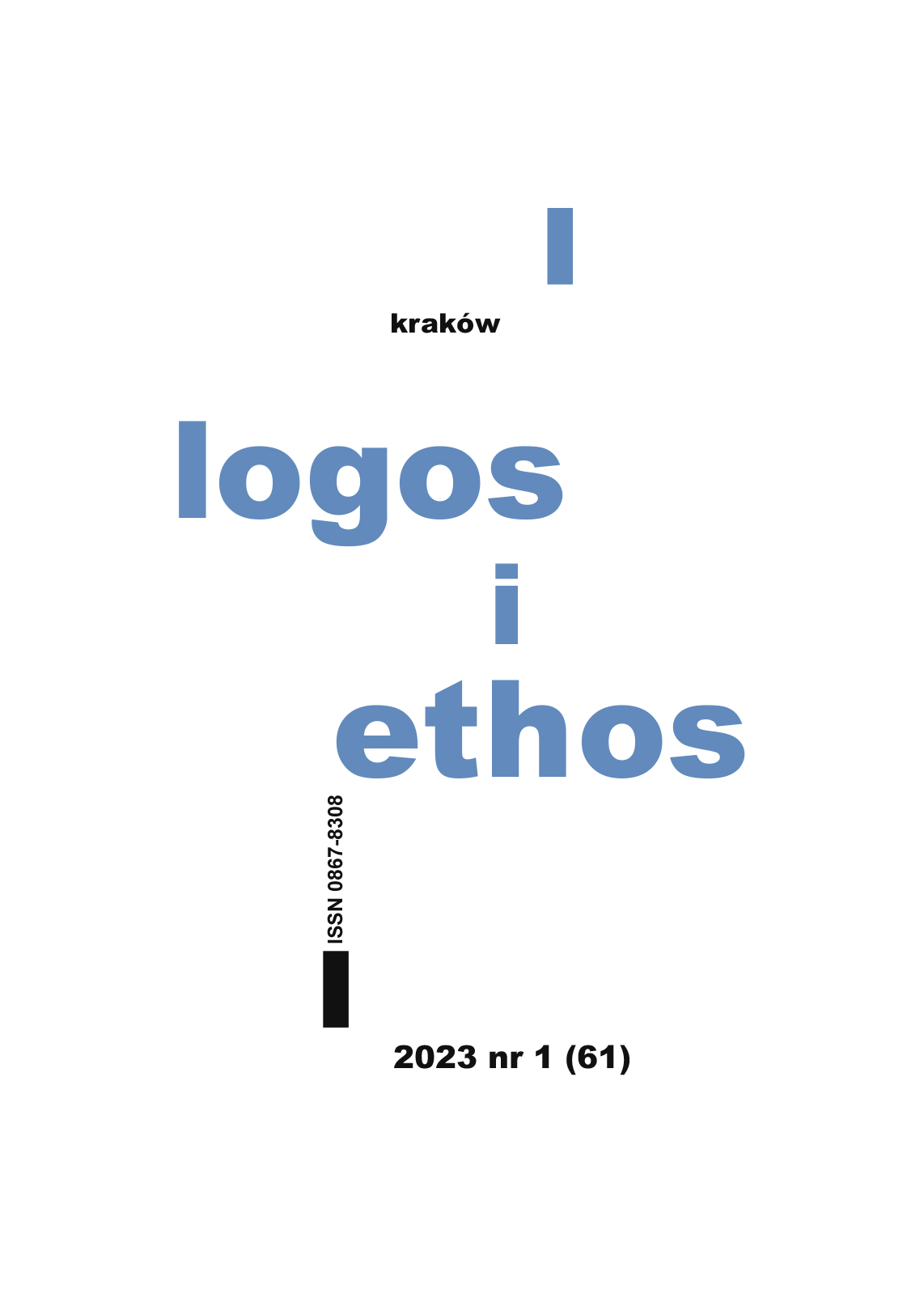Evidence of Karol Wojtyła’s thought formation as preserved in archival materials
DOI:
https://doi.org/10.15633/lie.61101Keywords:
Karol Wojtyła, Thomism, phenomenology, postdoctoral dissertation, archival materialsAbstract
The purpose of the present article is to present selected differences between two versions of the endings of Karol Wojtyła’s postdoctoral dissertation Ocena możliwości zbudowania etyki chrześcijańskiej przy założeniach systemu Maksa Schelera. The endings are available in the archival materials deposited in the Archives of the Metropolitan Curia in Krakow. On the basis of the differences indicated, the author defends the thesis that in the later version of the ending Wojtyła softened and nuanced his attitude to Max Scheler’s philosophy as well as to phenomenology as a research method. The article also takes up clues pointing to a change in philosophical attitude that took place in Karol Wojtyła’s philosophy in the 1950s. This change shifts from a strictly metaphysical attitude – based on Thomistic metaphysics – to a strictly anthropological attitude, which is founded on Thomistic metaphysics. In the anthropological attitude, Wojtyła finds much greater application capabilities for the phenomenological method, but ultimately the results obtained through it depend on their compatibility with the metaphysical background of his philosophy.
References
Gilson E., The Unity of Philosophical Experience, Charles Scribner’s Sons, New York 1950.
Petryszak K., „Etyka” a „moralność” – analiza zmiany terminów w maszynopisach pracy habilitacyjnej Karola Wojtyły, „Logos i Ethos” 59 (2022) nr 1, s. 105–132.
Scheler M., Der Formalismus in der Ethik und die Materiale Wertethik, Halle a.[n] d.[er] S.[aale] 1921.
Wojtyła K., Ocena możliwości zbudowania etyki chrześcijańskiej przy założeniach systemu Maksa Schelera, Kraków 1954, a typescript with ref. no. AKKW CII–9/110a.
Wojtyła K., Ocena możliwości zbudowania etyki chrześcijańskiej przy założeniach systemu Maksa Schelera, Kraków 1954, a typescript with ref. no. AKKW CII–9/110b.
Wojtyła K., Ocena możliwości zbudowania etyki chrześcijańskiej przy założeniach systemu Maksa Schelera, Towarzystwo Naukowe Katolickiego Uniwersytetu Lubelskiego Jana Pawła II, Lublin 1959.
Wojtyła K., Ocena możliwości zbudowania etyki chrześcijańskiej przy założeniach systemu Maksa Schelera, in: Zagadnienie podmiotu moralności, eds. T. Styczeń, J. W. Gałkowski, A. Rodziński, A. Szostek, Towarzystwo Naukowe Katolickiego Uniwersytetu Lubelskiego Jana Pawła II, Lublin 1991, p. 11–128 (Źródła i Monografie, 119; Człowiek i Moralność, 2).
Wojtyła K., Ocena możliwości zbudowania etyki chrześcijańskiej przy założeniach systemu Maksa Schelera, in: Zagadnienie podmiotu moralności, ed. T. Styczeń et al., Towarzystwo Naukowe Katolickiego Uniwersytetu Lubelskiego Jana Pawła II, Lublin 2001, p. 11–128 (Źródła i Monografie, 119; Człowiek i Moralność, 2).
Wojtyła K., Ocena możliwości zbudowania etyki chrześcijańskiej przy założeniach systemu Maksa Schelera, in: Zagadnienie podmiotu moralności, consultation et comments M. Zięba OP, Katolicka Agencja Informacyjna, Hachette Livre Polska Collection, Warszawa 2008 (Kolekcja Dzieł Jana Pawła II, 44).
Wojtyła K., Próba opracowania etyki chrześcijańskiej według systemu Maksa Schelera, Kraków 1953, a typescript with ref. no. AKKW CII–9/110.
Wojtyła K., Wykłady lubelskie, ed. T. Styczeń et al., Towarzystwo Naukowe Katolickiego Uniwersytetu Lubelskiego Jana Pawła II, Lublin 2006 (Źródła i Monografie, 302; Człowiek i Moralność, 3).
Downloads
Published
Issue
Section
License

This work is licensed under a Creative Commons Attribution 4.0 International License.
Authors who publish with this journal agree to the following terms:
- Authors retain the copyright and full publishing rights without restrictions, and grant the journal right of first publication with the work simultaneously licensed under a Creative Commons Attribution 4.0 International License that allows others to share the work with an acknowledgement of the work's authorship and initial publication in this journal.
- Authors are able to enter into separate, additional contractual arrangements for the non-exclusive distribution of the journal's published version of the work (e.g., post it to an institutional repository or publish it in a book), with an acknowledgement of its initial publication in this journal.
- Authors are permitted and encouraged to post their work online (e.g., in institutional repositories or on their website) prior to and during the submission process, as it can lead to productive exchanges, as well as earlier and greater citation of published work (See The Effect of Open Access).

